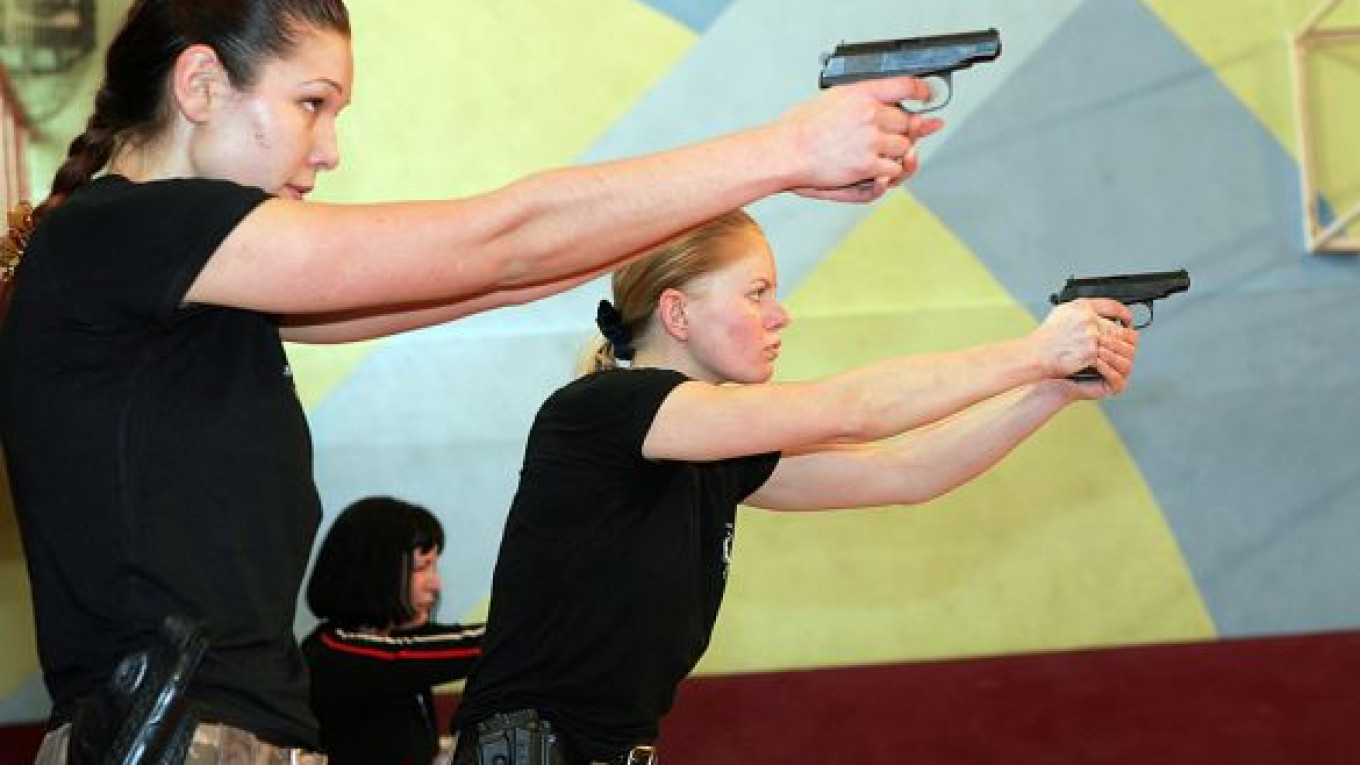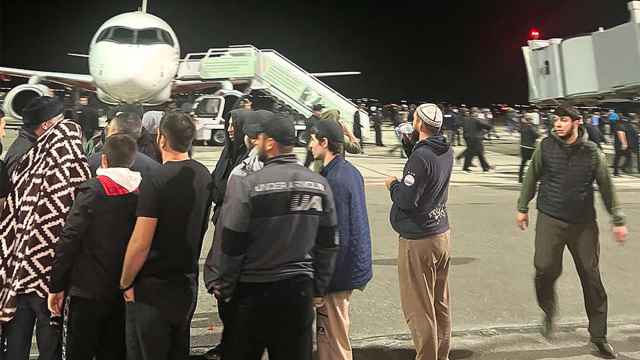Ammunition for air guns has disappeared from the city's specialized stores, apparently on verbal orders from a police force that has long frowned upon people buying — and often abusing — non-lethal firearms.
Although officially blamed on red tape, the disappearance of the ammunition is actually part of an Interior Ministry campaign to ban air guns across the country, Izvestia Friday.
Such an unofficial ban would amount to abuse of power, a pro-gun activist said. The ban also appears to have been ignored outside Moscow.
The Interior Ministry prohibited sales of air gun ammunition following the passage of new legislation on gun control this summer, Izvestia said. The bill requires relicensing of all such firearms.
Leonid Vedenov, deputy department head at the Interior Ministry, denied that a verbal ban had been ordered. But he noted that only people who have successfully reregistered their air guns are now allowed to purchase ammunition for them.
A salesman at one of the city's hunting stores confirmed to a Moscow Times reporter that the store had stopped selling ammunition until police wrap up a nationwide relicensing of air guns.
"I can't tell you when it will be finished — before or after the elections," the salesman said in reference to the State Duma vote on Dec. 4.
But the salesman, who only offered his first name, Pavel, said ammunition remains freely available in Moscow region stores. "You can cross the Moscow Ring Road and buy everything," he advised.
Indeed, Moscow region stores have chosen to ignore the verbal order, Gleb Obukhovsky, of the All-Russia Association of Civilian Weapons' Owners, confirmed to Izvestia.
In Moscow, while ammunition is lacking, air guns remain on display. The store visited by The Moscow Times had more than a dozen models on the shelves, ranging from the low-budget Osa (Wasp), a favorite at 11,500 rubles ($370) to an American-made gas pistol for 43,000 rubles.
have not missed out on the mishap, with one, Ymax99, even speculating that the authorities are anticipating civil unrest ahead of the elections.
Foreigners are barred from owning lethal weapons and air guns. But Russians who cannot own lethal weapons have been snapping up air guns in recent years.
The bill passed last summer tightens regulations in the field, obliging prospective buyers to undergo police-supervised training and purchase special boxes with locks to store the weapons. The law also places limits on the sale of air guns.
But the Interior Ministry has said it would push for a blanket ban on air guns, insisting that their non-lethality status encourages abuse that can actually result in deaths.
About 1,500 instances of gun abuse were registered in Russia between 2005 and 2010, Vedenov of the Interior Ministry said last year. Sixty ended in fatalities.
Several incidents have made headlines in recent years, the most widely publicized being a 2009 shootout in which police officer Anatoly Maurin mortally injured the driver of a snowplow who scratched his car.
"There are a lot of lunatics out there who use air guns without thinking twice," a judge who sits on a provincial court said in an interview Saturday. "I had cases of cops doing that, too."
"I understand the need for personal defense, but the unskilled use of air guns can be deadly," said the judge, who spoke on condition of anonymity because she was not authorized to speak with the media.
But the current ban on ammunition represents an abuse of power by the Interior Ministry, said Sergei Zainullin, deputy head of the All-Russia Association of Civilian Weapons' Owners.
"The right to bear arms is an unalienable one, just like property rights, and can only be limited through legislation, not emotions," Zainullin said by telephone Sunday.
Ironically, the scandal unfolds as a group of Kemerovo region legislators proposed last week to expand the usage of air guns, issuing them to ambulance workers who, deputies said, often have to fend off attacks on the road. The bill was introduced to the Duma on Friday.
A Message from The Moscow Times:
Dear readers,
We are facing unprecedented challenges. Russia's Prosecutor General's Office has designated The Moscow Times as an "undesirable" organization, criminalizing our work and putting our staff at risk of prosecution. This follows our earlier unjust labeling as a "foreign agent."
These actions are direct attempts to silence independent journalism in Russia. The authorities claim our work "discredits the decisions of the Russian leadership." We see things differently: we strive to provide accurate, unbiased reporting on Russia.
We, the journalists of The Moscow Times, refuse to be silenced. But to continue our work, we need your help.
Your support, no matter how small, makes a world of difference. If you can, please support us monthly starting from just $2. It's quick to set up, and every contribution makes a significant impact.
By supporting The Moscow Times, you're defending open, independent journalism in the face of repression. Thank you for standing with us.
Remind me later.






